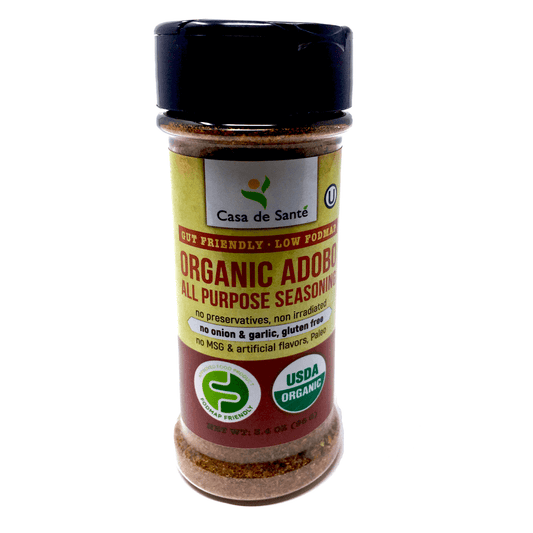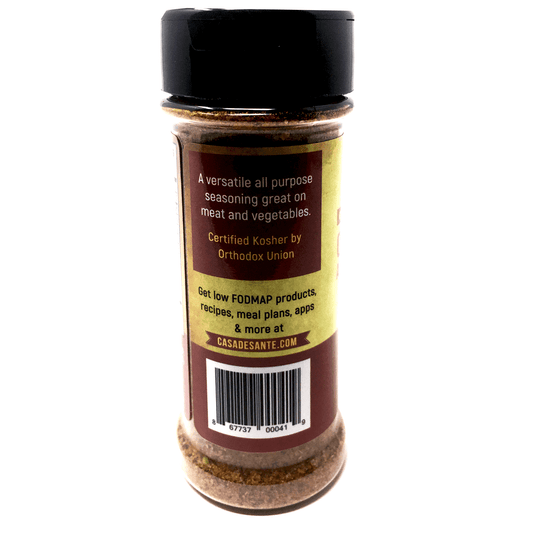Alternative Therapies: Inflammatory Bowel Disease Explained
Inflammatory Bowel Disease (IBD) is a term that describes conditions characterized by chronic inflammation of the gastrointestinal tract. The two most common forms of IBD are Crohn's disease and ulcerative colitis. This glossary article aims to provide an in-depth understanding of alternative therapies used in the management of IBD. These therapies, which are often used in conjunction with traditional medical treatments, can help manage symptoms, improve quality of life, and potentially influence the course of the disease.
While the exact cause of IBD is unknown, it's thought to result from an abnormal immune response to the microbes in the gut. This response leads to inflammation, which causes the symptoms of IBD. Symptoms can vary widely and may include diarrhea, abdominal pain, fatigue, and weight loss. Because IBD is a chronic condition, patients often seek out alternative therapies to help manage their symptoms and improve their quality of life.
Herbal Medicine
Herbal medicine involves the use of plants or plant extracts to treat health conditions. Many herbs have anti-inflammatory properties, which can be beneficial for managing IBD. Some commonly used herbs for IBD include turmeric, aloe vera, and slippery elm. These herbs are often taken orally, but can also be used topically or in enemas.
While some studies have shown promising results, the effectiveness of herbal medicine for IBD is still being researched. It's important to discuss any herbal remedies with your healthcare provider before starting them, as some herbs can interact with other medications or have side effects.
Turmeric
Turmeric is a spice that has been used in traditional medicine for centuries. It contains a compound called curcumin, which has anti-inflammatory properties. Some studies have shown that curcumin can help reduce inflammation in the gut and improve symptoms of IBD.
However, more research is needed to fully understand the potential benefits and risks of turmeric for IBD. It's also important to note that turmeric can interact with other medications, so it's important to discuss this with your healthcare provider before starting any new treatment.
Aloe Vera
Aloe vera is a plant that has been used in traditional medicine for its healing properties. It's often used topically for skin conditions, but can also be taken orally for digestive issues. Some studies have shown that aloe vera can help reduce inflammation in the gut and improve symptoms of IBD.
However, more research is needed to fully understand the potential benefits and risks of aloe vera for IBD. It's also important to note that aloe vera can have side effects, including diarrhea and abdominal cramps, so it should be used with caution.
Dietary Changes
Diet plays a crucial role in managing IBD. Certain foods can trigger symptoms, while others can help reduce inflammation. Many people with IBD find that making dietary changes can help manage their symptoms. This can involve eliminating certain foods, following a specific diet, or taking dietary supplements.
However, dietary changes should be made under the guidance of a healthcare provider or dietitian. It's important to ensure that any dietary changes provide adequate nutrition and don't lead to other health problems.
Elimination Diets
An elimination diet involves removing certain foods or food groups from the diet to see if symptoms improve. Commonly eliminated foods include dairy products, gluten, and certain types of carbohydrates. If symptoms improve after eliminating a certain food, it's then reintroduced to see if symptoms return.
This process can help identify food triggers, which can then be avoided to help manage symptoms. However, elimination diets should be done under the supervision of a healthcare provider or dietitian to ensure they're done safely and effectively.
Specific Diets
Some people with IBD find that following a specific diet can help manage their symptoms. These diets often involve eating certain types of foods and avoiding others. Some commonly followed diets for IBD include the low FODMAP diet, the Specific Carbohydrate Diet (SCD), and the Mediterranean diet.
These diets can be complex and difficult to follow, so it's important to work with a healthcare provider or dietitian. They can provide guidance and ensure that the diet provides adequate nutrition.
Probiotics and Prebiotics
Probiotics are live bacteria and yeasts that are good for your health, especially your digestive system. Prebiotics are types of dietary fiber that feed the friendly bacteria in your gut. Both can play a role in managing IBD by helping to maintain a healthy balance of gut bacteria.
However, more research is needed to understand the potential benefits and risks of probiotics and prebiotics for IBD. It's also important to note that not all probiotics and prebiotics are the same. Different strains have different effects, and some may be more beneficial for IBD than others.
Probiotics
Probiotics can be found in certain foods, like yogurt and fermented foods, or taken as dietary supplements. Some studies have shown that certain strains of probiotics can help reduce inflammation in the gut and improve symptoms of IBD.
However, more research is needed to determine which strains are most effective and how they should be used. It's also important to discuss any new treatments with your healthcare provider before starting them.
Prebiotics
Prebiotics are found in many fruits and vegetables, especially those that contain complex carbohydrates, like fiber and resistant starch. These substances aren't digested by your body, so they pass through the digestive system to become food for the bacteria and other microbes in your gut.
Some studies have shown that prebiotics can help promote a healthy balance of gut bacteria and reduce inflammation in the gut. However, more research is needed to understand the potential benefits and risks of prebiotics for IBD.
Stress Management
Stress doesn't cause IBD, but it can trigger symptoms and exacerbate flare-ups. Therefore, stress management techniques can be an important part of managing IBD. These can include relaxation techniques, mindfulness, and cognitive behavioral therapy.
While stress management techniques can't cure IBD, they can help manage symptoms and improve quality of life. It's important to find techniques that work for you and incorporate them into your daily routine.
Relaxation Techniques
Relaxation techniques can help reduce stress and promote a sense of calm. These can include deep breathing exercises, progressive muscle relaxation, and guided imagery. These techniques can be done anywhere and require no special equipment.
While relaxation techniques can't cure IBD, they can help manage symptoms and improve quality of life. It's important to practice these techniques regularly for the best results.
Mindfulness and Cognitive Behavioral Therapy
Mindfulness involves focusing on the present moment without judgment. This can help reduce stress and promote a sense of calm. Cognitive behavioral therapy (CBT) is a type of psychotherapy that can help change negative thought patterns and behaviors.
Both mindfulness and CBT have been shown to help reduce stress and improve quality of life in people with IBD. However, these techniques should be used in conjunction with other treatments, not as a replacement for medical treatment.
Exercise
Regular exercise can help manage IBD by reducing stress, promoting a healthy weight, and improving overall health. However, it's important to choose activities that are enjoyable and don't exacerbate symptoms. For some people with IBD, this may mean low-impact activities like walking or swimming.
It's also important to start slowly and gradually increase intensity and duration. It's also important to listen to your body and rest when needed. Always discuss any new exercise program with your healthcare provider before starting.
Benefits of Exercise
Regular exercise has many benefits for people with IBD. It can help reduce stress, promote a healthy weight, and improve overall health. Exercise can also help manage symptoms of IBD, like fatigue and depression.
However, it's important to choose activities that are enjoyable and don't exacerbate symptoms. For some people with IBD, this may mean low-impact activities like walking or swimming.
Starting an Exercise Program
Starting an exercise program can be intimidating, especially for people with chronic health conditions like IBD. However, it's important to start slowly and gradually increase intensity and duration. It's also important to listen to your body and rest when needed.
Always discuss any new exercise program with your healthcare provider before starting. They can provide guidance and ensure that the program is safe and effective.
Conclusion
Managing IBD often involves a combination of medical treatments and lifestyle changes. Alternative therapies can be an important part of this approach. They can help manage symptoms, improve quality of life, and potentially influence the course of the disease.
However, it's important to discuss any new treatments with your healthcare provider before starting them. They can provide guidance and ensure that the treatments are safe and effective. It's also important to continue with regular medical care and follow your healthcare provider's advice.
























